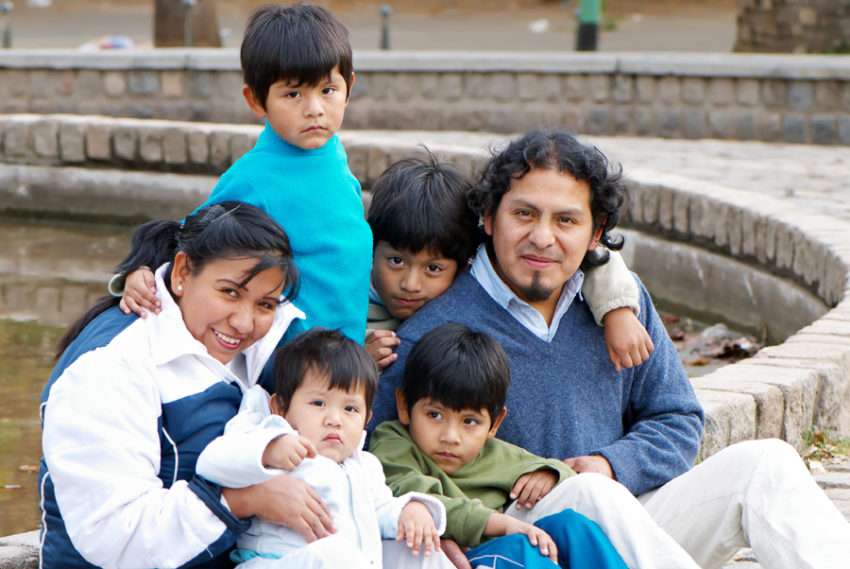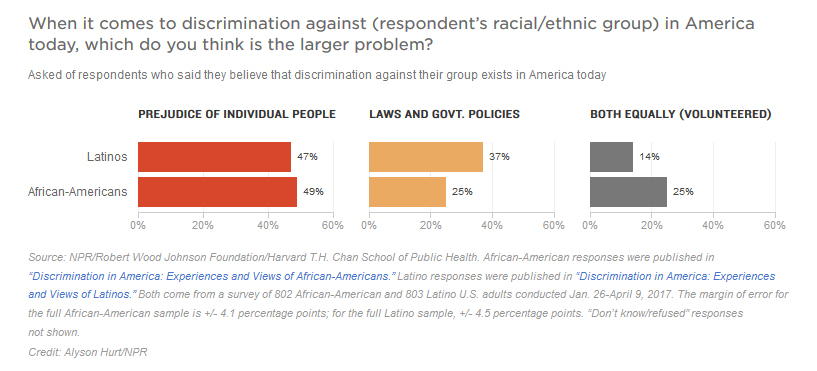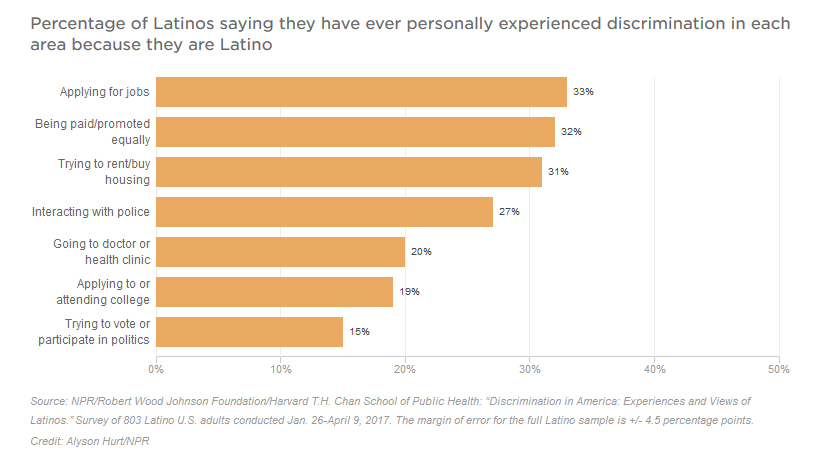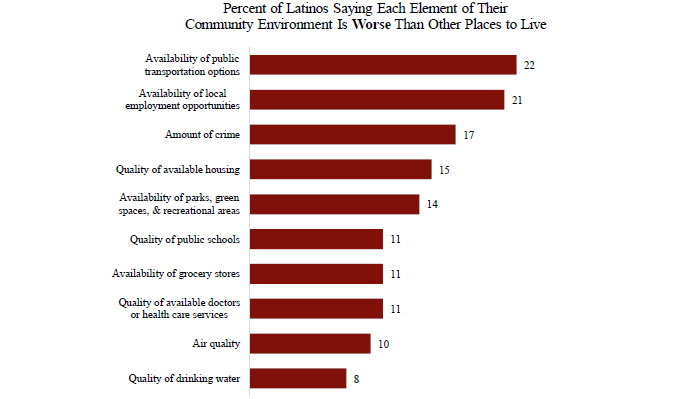
Share On Social!
Three in four U.S. Latinos (78%) believe Latinos face discrimination in America today, compared to 92% of blacks and 55% of whites who say they face discrimination, according to a new poll.
 Who is doing the discriminating?
Who is doing the discriminating?
Nearly half of Latinos (47%) believe personal prejudice is the bigger problem. A smaller amount (37%) say say discrimination based in laws and government policies is the bigger problem. About 14% say they’re equally problematic.
The data is from a new poll by National Public Radio (NPR), the Robert Wood Johnson Foundation (RWJF), and the Harvard T.H. Chan School of Public Health.
“Basically what we have found is that discrimination is a type of stressful life experience that has negative effects on health similar to other kinds of stressful experiences,” Harvard professor David Williams told NPR.
What Did the Poll Ask?
The new poll asked about personal experiences with discrimination across more than 12 areas of daily life among 3,453 African Americans, Latinos, Asian Americans, Native Americans, Whites, and LGBTQ adults, as well as men and women.
Reports on how each group experiences discrimination will be released over the next few weeks.
So far, poll findings have shown:
- Most Americans Think Their Own Group Faces Discrimination
- Majority Of White Americans Say They Believe Whites Face Discrimination
- How Black Americans See Discrimination
The poll’s Latino-focused data came out Nov. 1, 2017.
Poll Findings on Latinos: Personal Experiences of Discrimination
Nearly 40% of Latinos say they have personally experienced racial or ethnic slurs.
Nearly a third of Latinos say they have been personally discriminated against because they are Latino when:
because they are Latino when:
- applying for jobs (33%);
- being paid equally or considered for promotions (32%); and
- trying to rent a room or apartment or buy a house (31%).
At least one in five Latinos say they or a family member are treated unfairly by the courts (20%) or unfairly stopped or treated by the police (27%) because they are Latino.
Non-immigrant Latinos are nearly twice as likely as immigrant Latinos to report this.
Even worse, one in five Latinos report that they have avoided medical care (17%) or calling the police (17%), even when in need, due to concern that they or a family member would be discriminated against because they are Latino.
“A substantial share of Latinos, particularly Latina women, report they have been discriminated against in trying to seek medical care — and when they need it, they often avoid getting it,” Robert J. Blendon, the director of the poll and professor of health policy and political analysis at the Harvard Chan School, told NPR. “And that can create major health problems when people are so anxiety-ridden about how they were treated that they don’t seek care when they think they actually need it.”
Poll Findings on Latinos: Community Perspectives
 Latinos say discrimination “often” happens to other Latinos in their local community in the workplace, when seeking housing, and when interacting with police.
Latinos say discrimination “often” happens to other Latinos in their local community in the workplace, when seeking housing, and when interacting with police.
Latinos also rated the availability of public transportation and local employment opportunities as “worse” in their area.
On the bright side, they also rated the amount of crime and the availability of parks, green spaces, and recreational areas as “better.”
Poll Findings on Latinos: Politics
The poll found that 15% of Latinos say they’ve been discriminated against personally when trying to vote or participate in politics because they are Latino, according to NPR.
Separately, 1 in 10 says that where he or she lives, other Latinos are “often” discriminated against in voting or politics.
Finally, 42% of Latinos say that in the past year, they have been personally contacted by representatives of a political party, candidate, organization, or ballot issue encouraging them to vote or support their cause in an election. This personal contact may increase the likelihood of voting or other forms of civic or political participation.
Low-income Latinos are much less likely to get personal contact than their higher-income peers, and less than African Americans (55%).
“Overall, these findings illustrate that Latinos perceive significant discrimination across a wide range of areas of life,” according to the poll. “They also highlight that younger Latinos, non-immigrant Latinos, and Latinos with college degrees are significantly more likely to report personal experiences of many forms of discrimination.”
By The Numbers
142
Percent
Expected rise in Latino cancer cases in coming years



